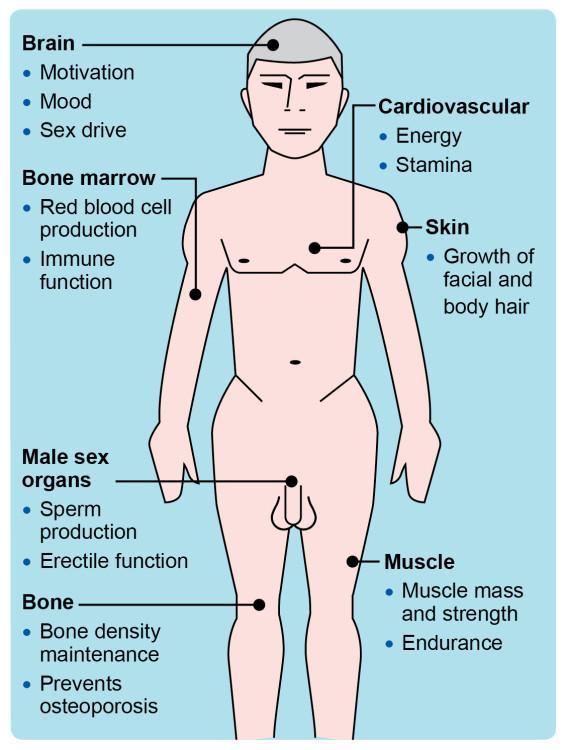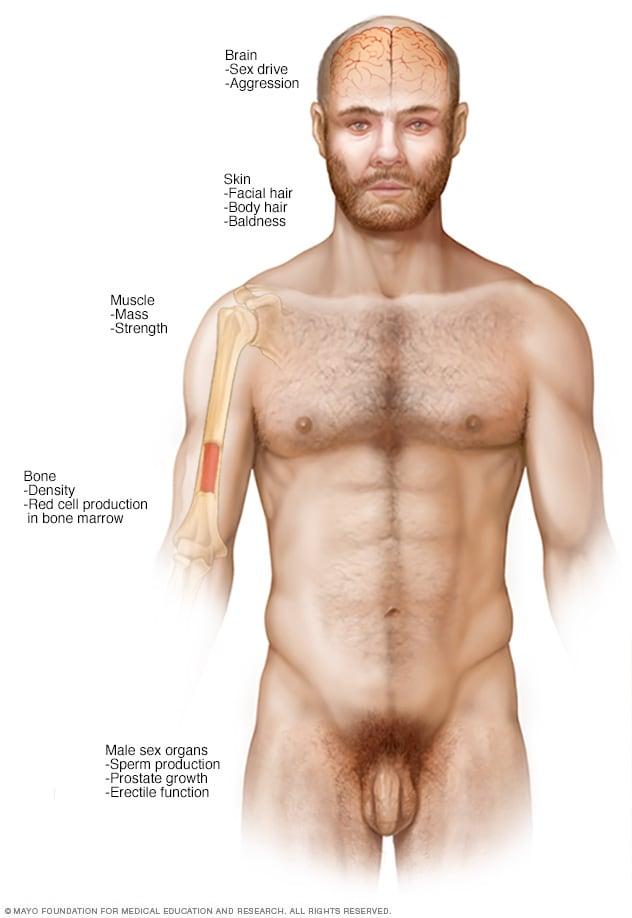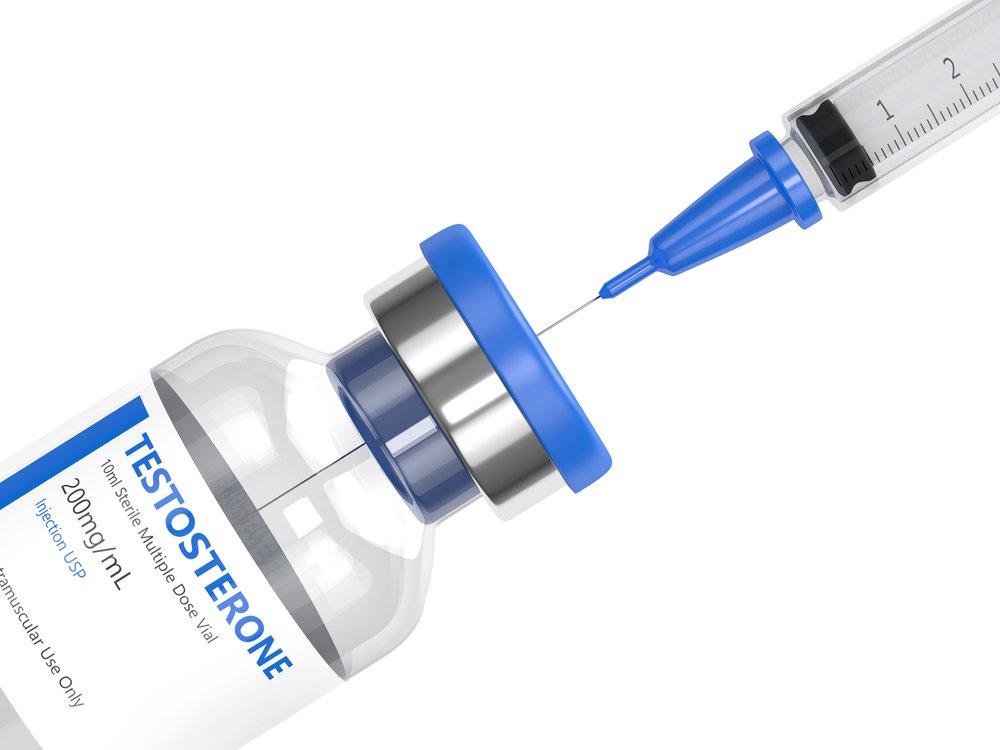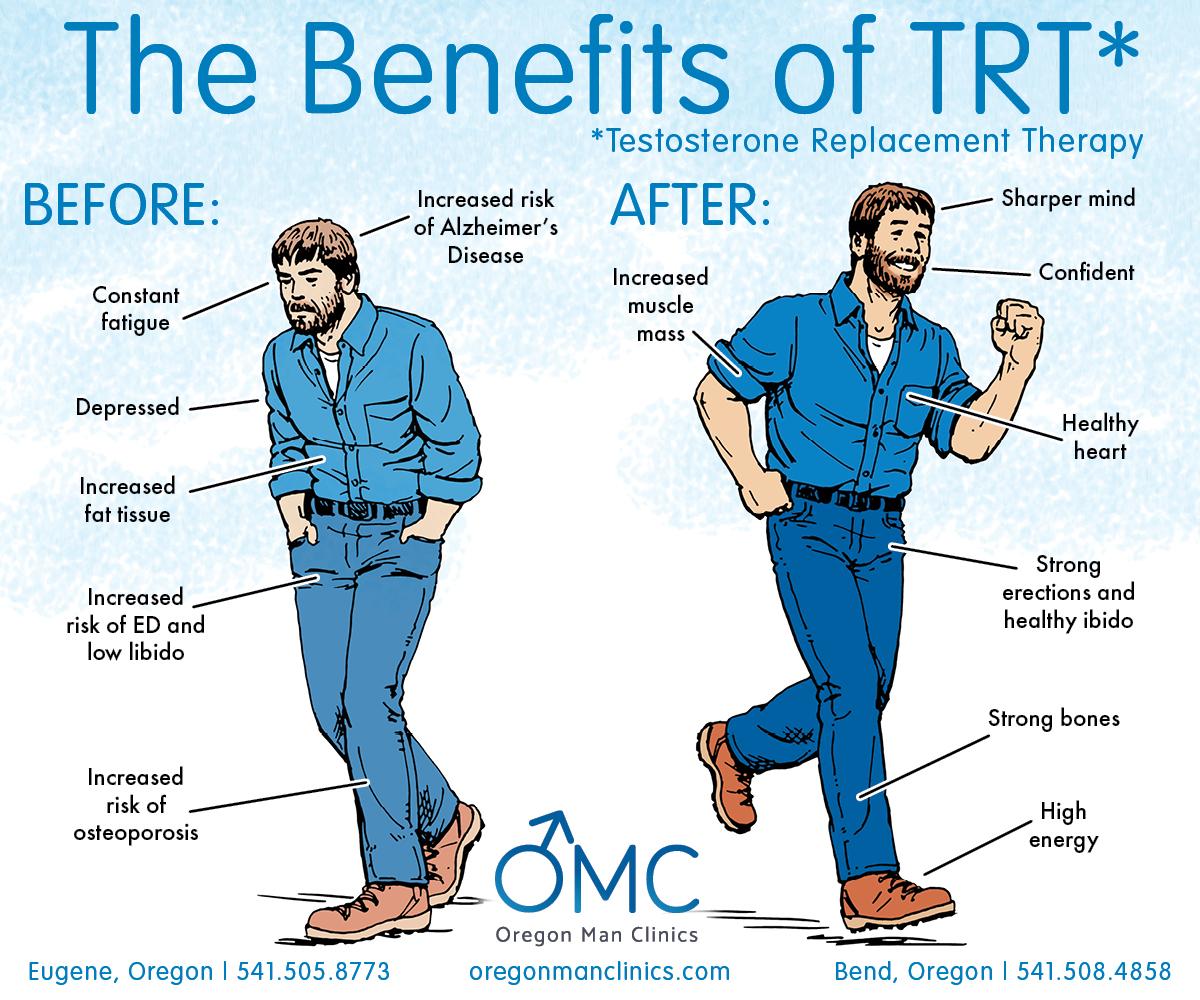In a world where the intricate relationship between physical well-being and mental health is increasingly recognized, the spotlight has begun to shine on testosterone therapy—a treatment long associated with physical vigor and performance enhancement. Yet, its potential extends far beyond muscle mass and athletic prowess, weaving deeper into the fabric of psychological resilience. This article embarks on an exploration of how testosterone therapy may serve as an unexpected ally in the realm of mental health. As we peel back the layers of science and anecdote, we will examine emerging research, personal narratives, and the nuanced mechanisms at play, raising pivotal questions about the role hormones may play in shaping mood, cognition, and overall emotional well-being. Join us on this journey through the intricate dance of hormones and mental health, as we seek to understand whether restoring hormonal balance can indeed pave the way for improved psychological outcomes.
Understanding the Role of Testosterone in Mental Health Dynamics
The intricate relationship between testosterone and mental health reveals a complex interplay that extends beyond traditional notions of masculinity. Testosterone, often stereotypically associated with physical strength, also plays a pivotal role in regulating mood, energy levels, and cognitive functions. Research indicates that testosterone may contribute to the modulation of neurotransmitters such as serotonin and dopamine, both of which are crucial in maintaining emotional balance and regulating mood. Individuals with lower testosterone levels may experience increased risks of anxiety, depression, and cognitive decline, signaling that the hormone’s influence permeates the bounds of physicality into the realm of psychological well-being.
Furthermore, the potential benefits of testosterone therapy for mental health are gaining attention as more studies illuminate its effects on mood stabilization and overall psychological resilience. Considerations for therapy include:
- Improved Mood: Clinical evidence suggests that testosterone replacement can alleviate depressive symptoms in men with low levels.
- Enhanced Cognitive Function: Testosterone may enhance memory and spatial abilities, which can be particularly beneficial for aging populations.
- Reduced Anxiety: Some studies indicate a reduction in anxiety levels following testosterone therapy, although results can vary.
It’s important to approach testosterone therapy with careful evaluation, as individual needs vary significantly. The table below summarizes key considerations for both potential benefits and challenges of testosterone therapy:
| Benefits | Challenges |
|---|---|
| Boosts mood | Potential for aggressive behaviors |
| Improves cognitive function | Risk of hormone imbalance |
| Enhances motivation | Requires ongoing monitoring |

Exploring the Connection Between Testosterone Deficiency and Mood Disorders
Testosterone, often linked to physical attributes like muscle mass and libido, plays a significant role in emotional health. Research indicates that a deficiency in testosterone levels can lead to various mood disorders such as depression, anxiety, and irritability. Individuals experiencing low testosterone often report feelings of fatigue and a lack of motivation, which can further exacerbate their emotional struggles. Key symptoms associated with testosterone deficiency include:
- Low energy levels
- Increased irritability
- Difficulty concentrating
- Feelings of sadness
Understanding the connection between testosterone and mood disorders opens the door for potential therapeutic interventions. Hormone replacement therapy presents a promising option for those suffering from the dual impacts of hormonal imbalance and mental health issues. As treatment options expand, it is essential to consider not just the physical benefits but also the psychological effects of restoring hormonal balance. Here’s a brief overview of potential therapeutic approaches:
| Therapy Type | Description |
|---|---|
| Testosterone Injections | Directly increase testosterone levels in the body. |
| Transdermal Gels | Applied to the skin for gradual absorption of testosterone. |
| Patches | Offer a convenient way to maintain consistent testosterone levels. |

Evidenced Benefits of Testosterone Therapy in Alleviating Anxiety and Depression
Recent studies have revealed a compelling connection between testosterone levels and mental health, particularly in addressing anxiety and depression. As men and women age, a decline in testosterone can lead to increased feelings of lethargy and emotional instability, emphasizing the importance of maintaining hormonal balance. The following benefits of testosterone therapy have been observed:
- Improved Mood: Individuals undergoing testosterone therapy often report enhanced mood stability and decreased irritability.
- Reduced Anxiety: Higher testosterone levels are associated with lower anxiety scores, helping individuals feel more at ease in daily situations.
- Enhanced Cognitive Function: Patients frequently experience better focus and memory, contributing to overall mental clarity.
- Increased Motivation: Many find a resurgence in motivation, which can combat feelings of depression and lethargy.
Clinical trials have indicated that testosterone therapy can be particularly advantageous for those diagnosed with androgen deficiency. A summary of key findings is presented in the table below:
| Study | Participants | Results |
|---|---|---|
| Smith et al. (2021) | 150 men | 30% improvement in depression symptoms |
| Johnson & Lee (2020) | 200 women | Significant reduction in anxiety scores |
| Anderson (2019) | 100 seniors | Increased overall life satisfaction |
These findings underscore the potential for testosterone therapy to not only address physical health issues but also to play a crucial role in enhancing emotional well-being. As research continues, the role of testosterone in mental health will likely shed more light on effective treatment strategies for anxiety and depression.

Evaluating Risks and Concerns Associated with Testosterone Treatment
Testosterone treatment can present a range of risks and concerns that require careful evaluation before initiating therapy. Some individuals may experience increased aggression or mood swings, potentially exacerbating mental health issues rather than alleviating them. It’s essential to consider the physiological effects, including cardiovascular risks such as high blood pressure or worsening cholesterol levels, which can pose significant threats, particularly in older adults or those with pre-existing conditions. Additionally, potential lifestyle implications should be acknowledged, including changes in sleeping patterns or libido, which may further complicate mental health status.
Healthcare providers must also navigate the impact of testosterone on pre-existing psychological conditions. Certain cases may lead to an increase in anxiety or depression and, in some situations, trigger manic episodes in individuals with bipolar disorder. Regular monitoring is crucial to mitigate these risks and adjust treatment plans accordingly. To facilitate informed decisions, a preliminary assessment of risks associated with this therapy should include:
- Cardiovascular health assessment
- Evaluation of psychological stability
- Discussion of lifestyle habits
- Thorough review of existing medications
| Risk Factor | Potential Impact |
|---|---|
| Increased Aggression | Mood swings, relationship issues |
| Cardiovascular Risks | High blood pressure, heart disease |
| Sleep Disturbances | Fatigue, irritability |
| Hormonal Imbalances | Developmental changes, fertility issues |
Navigating the Process: What to Expect from Testosterone Therapy
Embarking on testosterone therapy can feel overwhelming, but understanding the steps involved can help ease anxiety. Initially, a thorough assessment by a healthcare provider is essential. This evaluation typically includes:
- Medical History Review: Your provider will inquire about your physical and mental health history.
- Blood Tests: These tests measure hormone levels, kidney function, and more to determine suitability for therapy.
- Discussion of Symptoms: Expect to discuss your symptoms related to mental health and overall well-being.
Once you are deemed a candidate, you can expect to start on a treatment plan tailored for your specific needs. During this phase, it’s vital to monitor progress and any side effects closely. Regular follow-up appointments typically involve:
- Blood Work: To assess hormone levels and adjust dosages accordingly.
- Mental Health Assessments: Understanding how therapy impacts mood, energy, and overall mental state.
- Lifestyle Guidance: Recommendations on nutrition, exercise, and mental health strategies.
Assessing Individual Needs: A Personalized Approach to Mental Health Management
Understanding mental health requires a tailored strategy that reflects the complexities of each individual’s experiences. In the realm of testosterone therapy, it becomes essential to recognize how hormonal balance directly influences emotional and psychological well-being. The interplay between testosterone levels and mental health can lead to various symptoms, including fatigue, mood swings, and cognitive impairments. Thus, assessing personal needs through careful monitoring of these hormone levels is crucial. A thorough evaluation might involve:
- Comprehensive blood tests: To ascertain current testosterone levels.
- Symptom questionnaires: To gauge emotional and psychological distress.
- Lifestyle assessments: Evaluating dietary habits, exercise routines, and sleep patterns.
After identifying the specific necessities and goals of an individual, healthcare professionals can devise a personalized treatment plan that harmonizes testosterone therapy with psychological support. This integrated approach ensures that both hormone levels and mental health strategies are consistently aligned, fostering a more effective healing environment. The table below showcases potential benefits linked to testosterone therapy in mental health management:
| Benefits | Description |
|---|---|
| Improved Mood | Supports emotional stability and reduces symptoms of depression. |
| Increased Energy | Enhances vitality, leading to greater motivation and activity levels. |
| Enhanced Cognitive Function | May boost memory and concentration, facilitating better decision-making. |
Integrating Testosterone Therapy into a Holistic Mental Health Plan
Testosterone therapy can serve as a pivotal component of a holistic mental health approach. When integrated thoughtfully, it not only addresses hormonal imbalances but also complements psychological well-being through a synergistic framework. This can be particularly beneficial for individuals struggling with issues such as depression, anxiety, and cognitive decline. By enhancing energy levels, improving mood stability, and fostering a sense of vitality, testosterone therapy may lead to meaningful improvements in the overall mental health landscape.
To maximize the benefits of testosterone therapy, it is essential to consider it alongside other holistic practices. A well-rounded mental health strategy might include:
- Regular Physical Activity: Exercise has been shown to boost testosterone levels naturally while also improving mood through the release of endorphins.
- Nutrition: A balanced diet rich in essential nutrients can support both hormonal function and overall mental wellness.
- Mindfulness and Stress Management: Techniques like meditation and yoga can help mitigate anxiety and enhance emotional resilience.
- Quality Sleep: Prioritizing sleep hygiene ensures optimal hormonal regulation and cognitive function.
By fostering collaboration between healthcare providers, individuals can optimize their mental health outcomes through tailored treatments that account for both hormonal balance and psychological resilience. The following table illustrates the interplay between testosterone therapy and complementary practices:
| Component | Benefit |
|---|---|
| Testosterone Therapy | Increases energy and motivation |
| Exercise | Enhances mood and physical health |
| Nutritional Support | Improves hormone levels and cognitive function |
| Mindfulness Techniques | Reduces anxiety and stress |
| Sleep Hygiene | Regulates mood and emotional stability |
Q&A
Q&A: Exploring Testosterone Therapy for Mental Health
Q1: What is testosterone therapy, and how is it typically used?
A: Testosterone therapy involves the administration of testosterone, a hormone that plays a crucial role in male and female health. While traditionally used to treat conditions such as low testosterone levels—often referred to as “low T”—it has recently gained attention for its potential impact on mental health. This treatment can be administered through various methods, including injections, gels, and patches, and aims to bring hormone levels back to a normal range.
Q2: How does testosterone influence mental health?
A: Testosterone is intricately linked to various psychological processes, including mood regulation, motivation, and cognitive function. Research indicates that low testosterone levels may be associated with conditions such as depression, anxiety, and fatigue. By restoring testosterone to optimal levels, some individuals experience improvements in mood, an increase in energy levels, and enhanced overall well-being. However, the relationship is complex, and not everyone may benefit similarly.
Q3: Who might benefit from testosterone therapy for mental health purposes?
A: Individuals experiencing symptoms of low testosterone—such as fatigue, depression, and anxiety—may find relief through testosterone therapy. It is particularly considered for older adults and those with hormonal imbalances. However, it is essential to conduct a thorough assessment, as not all mental health issues are linked to hormone levels. Consulting with a healthcare provider is vital to determine whether this therapy is suitable for a specific individual’s circumstances.
Q4: Are there potential risks associated with testosterone therapy?
A: Yes, like any medical treatment, testosterone therapy carries potential risks. Side effects can include acne, sleep apnea, mood swings, and an increased risk of cardiovascular issues. Moreover, there can be consequences related to prolonged use, including hormone imbalances. This therapy should always be approached with caution and under the guidance of a qualified healthcare professional who can monitor for adverse effects.
Q5: Is there scientific evidence supporting the use of testosterone therapy for mental health?
A: The body of research on this topic is evolving. Some studies suggest that testosterone therapy can improve mood and reduce symptoms of depression, especially in individuals with clinically low testosterone levels. However, the evidence is not universally conclusive, and more rigorous studies are needed to establish definitive guidelines. Therefore, while promising, testosterone therapy as a mental health treatment should be considered as part of a broader approach to mental wellness.
Q6: How should someone considering testosterone therapy proceed?
A: The first step for anyone considering this therapy is to consult a healthcare professional. They can evaluate hormonal levels through blood tests, review medical history, and discuss symptoms. If testosterone therapy is deemed appropriate, a personalized treatment plan can be created, ensuring that benefits outweigh risks while actively monitoring for any side effects.
Q7: Are there alternative treatments for mental health issues?
A: Absolutely! Mental health treatment is multifaceted and can include therapy, lifestyle changes, medication, or a combination of these approaches. Exercise, nutrition, stress management, and psychotherapy have shown significant benefits for many individuals. A comprehensive assessment will help determine the best course of action tailored to individual needs.
Q8: What should be the takeaway regarding testosterone therapy and mental health?
A: Testosterone therapy can offer potential benefits for mental health, particularly for those with low hormone levels. However, it is not a one-size-fits-all solution and should be approached thoughtfully. The importance of professional guidance cannot be overstated; collaboration with a healthcare provider is essential in navigating the possibilities and challenges of integrating hormone therapy into mental health treatment.
In Conclusion
As we conclude our exploration of testosterone therapy and its potential impact on mental health, it becomes clear that this multifaceted treatment deserves careful consideration. While it may offer a beacon of hope for some individuals grappling with mood disorders and cognitive challenges, the journey towards understanding the full implications of hormone therapy is a nuanced one.
It is essential to approach the topic with an open mind and a balanced perspective, acknowledging both the benefits and the potential risks involved. As research continues to evolve, so too will our understanding of how testosterone interacts with mental health and well-being.
For those contemplating this therapy, informed discussions with healthcare providers are paramount, ensuring that choices are made with clarity and confidence. Ultimately, in the quest for mental wellness, every path is unique, and every discovery can lead to new horizons of possibility. As we navigate these complexities together, may we empower ourselves and others to seek solutions that resonate with our individual needs, embracing a holistic approach to health that honors both the mind and body.










